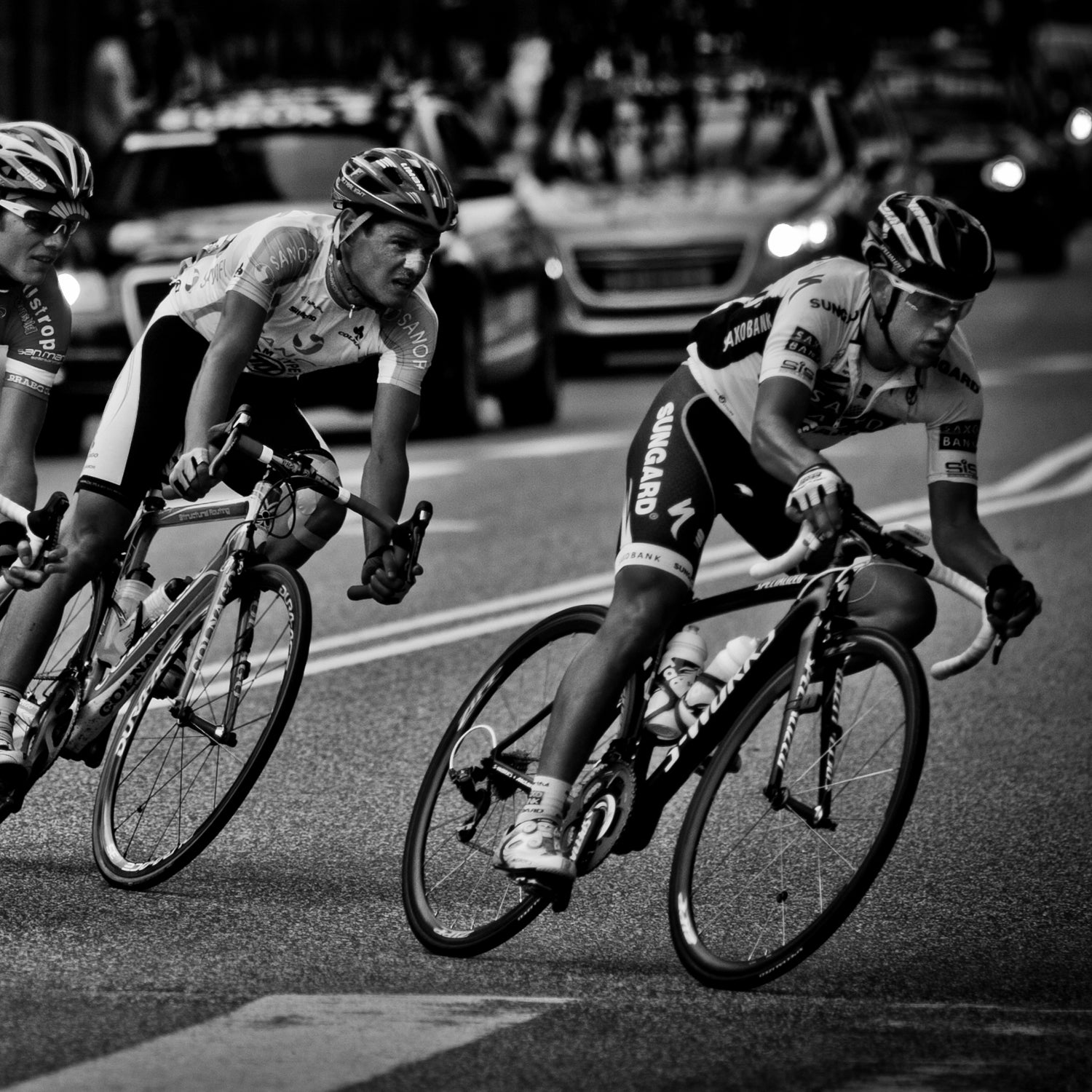Professional cycling, which has been in a PR tailspin for years with all its doping woes, gave itself another black eye yesterday at the Giro d’Italia.
In the run in to the finish of Stage 10, Team Sky’s Richie Porte, who started the day in third overall at just 22 seconds behind Alberto Contador, flatted with seven kilometers to go. It was an extremely unfortunate moment for a mechanical as the pace at the head of the peloton was ramping up. Fortunately for Porte, a friend and fellow Australian, Orica-Green Edge’s Simon Clarke, stopped and offered up his wheel. Four of Porte’s Sky teammates also waited and drove a frenzied chase to the line. They never latched back on, and Porte ended up conceding 47 seconds. That’s a lot of time, but it could have been much worse.
Put simply, Simon Clarke’s sporting gesture looked to have saved Porte’s GC aspirations.
But hours after the finish, the race jury announced that Porte’s impromptu wheel change was a violation of a race rule prohibiting riders from taking assistance from other teams. Both Porte and Clarke would be assessed the maximum penalty under the rules: a 200 Swiss Franc fine and a . The sanction made little difference to Clarke, who was already 38 minutes behind the leaders and had no designs on general classification. But it plunged Porte from third to 12th, and dug him a very deep hole from which he’ll have to climb to win the Giro.
Clarke’s snap decision to sacrifice his race in an effort to help a friend in the heat of the moment is a rare show of good sportsmanship in a sport that is plagued by rumors and stories of cheating.
There’s no question that Porte , which states, “Riders may only receive technical support from the technical personnel of their team or from one of the neutral support cars or else from the broom wagon.” And the regulation is in place for good reason as it prevents collusion between riders and teams, which could change the dynamics of a race. But legalities aside, the UCI jury should have exercised their latitude in this instance and waived the time penalty.
The Giro had, for all practical purposes, turned into a three-man race, with Contador, Fabio Aru, and Porte all within a few seconds of one another heading into this weekend’s pivotal time trial and a series of decisive mountain stages in the final week. By penalizing Porte, the UCI has changed the whole dynamic of the race, and they’ve done it over some red tape.
Public interest in racing is driven, in part, by close competition and the intrigue of seeing who might win. Races where a single rider dominates, such as Contador in the 2011 Giro or Bradley Wiggins in the 2012 Tour de France, are boring to watch as the results are all but a foregone conclusion. So by pushing Porte out of the top of the standings, the UCI has basically given fans one less reason to watch.
It’s especially frustrating as the UCI could have played up the incident for some good PR. Clarke’s snap decision to sacrifice his race in an effort to help a friend in the heat of the moment is a rare show of good sportsmanship in a sport that is plagued by rumors and stories of cheating. After the jury’s decision was announced, both Porte and Clarke said they didn’t even know of the rule when the wheel was changed. And even if they had known, it’s clear that there was no plotting or collusion involved. It was just a friend trying to help a friend.
Of course the Giro wouldn’t be the Giro without some controversy. “Polemica,” as the Italians call it. Last year, it came on , when Nairo Quintana took control of the race amid confusion over a weather neutralization. There was a huge uproar over fair play following that incident, though the furor eventually settled when Quintana decisively dismantled his opposition in the following days.
The same could turn out to be the case at this Giro. If Contador or Aru run away with the race and Porte loses by more than the two-minute penalty, the question over the fairness of the decision will subside.
It’s also worth remembering that Porte, while down, is not completely out. As the Australian National Time Trial champ, he could take back time on both of the leaders this Sunday. Three minutes and nine seconds, Porte’s current deficit, is not an insurmountable time gap to make up, especially with four mountaintop finishes remaining in the race. And who knows: the sense of injustice that Porte must feel over the time he was docked could he needs to take hold of the race.
There’s everything still left to race for in this Giro, and Porte shouldn’t be counted out. But the Australian’s chances weren’t helped by the UCI. The organization may have made the legally correct decision in assessing the time penalty against the Sky rider. But in doing so, they once again proved their incompetence in managing and promoting the sport.


